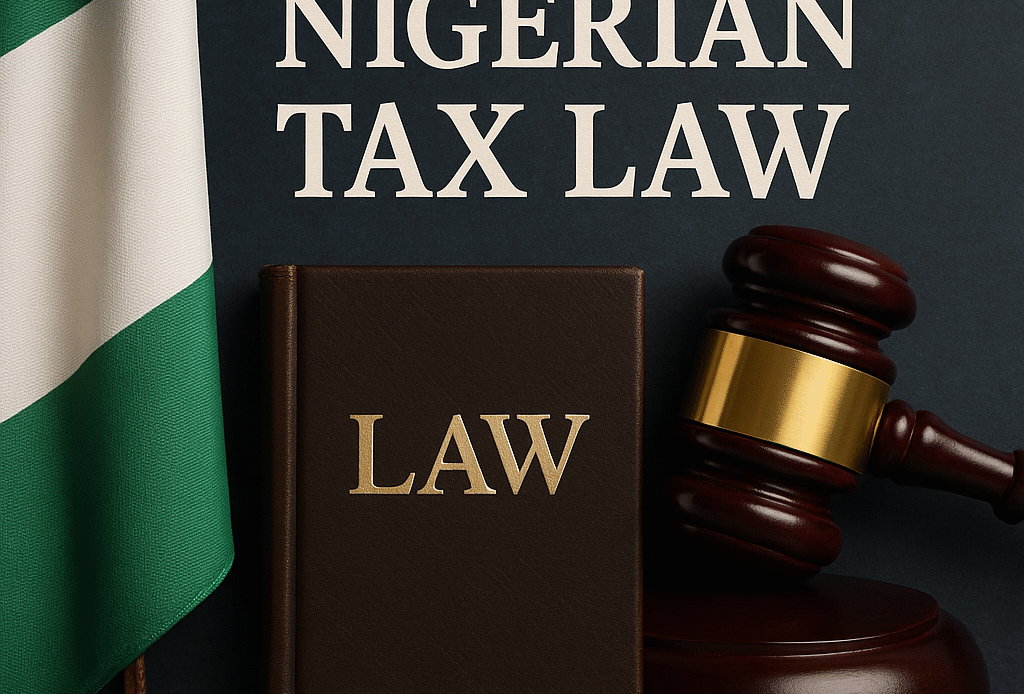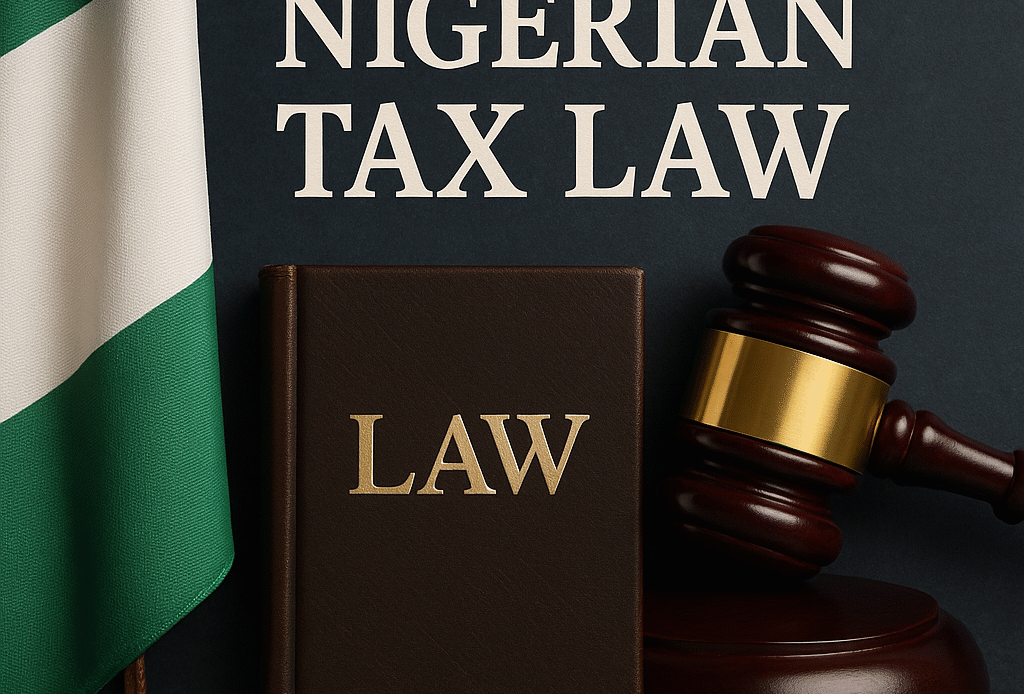
Author: Charles Chukwuma Nkwoka, Esq. (KSM), LLB, BL, LLM, CMC, FIMC, AICMC, ACIArb
Managing Partner, Chaman Law Firm
Website: www.chamanlawfirm.com
Email: chamanlawfirm@gmail.com
Phone: +234 806 555 3671
Office Address: 115, Obafemi Awolowo Way, Allen Junction, Beside Lagos Airport Hotel, Ikeja, Lagos.
Introduction
The Nigerian Tax Law forms the backbone of government revenue generation and economic regulation. For businesses, individuals, and investors—both local and international—understanding and complying with the tax obligations in Nigeria is not just a legal necessity but a strategic advantage.
At Chaman Law Firm, we specialize in helping clients navigate the complex terrain of Nigerian taxation, ensuring compliance, reducing legal risk, and supporting financial planning. This article provides a clear, comprehensive, and up-to-date guide to Nigeria’s tax structure.
Legal Foundation of Nigerian Tax Law
The Nigerian tax regime is grounded in a combination of:
Constitutional Provisions (1999 CFRN, as amended), Statutory Enactments, and Administrative Regulations.
The Constitution empowers the Federal Government, State Governments, and Local Governments to impose various taxes, under the Exclusive, Concurrent, and Residual Lists.
Key Tax Authorities in Nigeria
1. Federal Inland Revenue Service (FIRS)
Established under the FIRS Establishment Act, 2007, FIRS is the primary federal tax authority responsible for:
Companies Income Tax (CIT) Petroleum Profits Tax (PPT) Value Added Tax (VAT) Capital Gains Tax (CGT) Tertiary Education Tax Withholding Tax (WHT)
2. State Boards of Internal Revenue (SBIRs)
Each State Government operates its own SBIR, administering:
Personal Income Tax (PIT) under Pay-As-You-Earn (PAYE) Business Premises Levies Development Levies Capital Gains Tax (for individuals)
3. Local Government Authorities
They impose minor levies and rates, including:
Tenement Rates Market Levies Marriage, Birth, and Death Registration Fees
Categories of Taxes in Nigeria
A. Corporate and Business Taxes
Companies Income Tax (CIT): Levied at 30% on profits of most companies. SMEs with turnover below ₦25 million are exempt. Tertiary Education Tax (TET): 2.5% of assessable profits. Petroleum Profits Tax (PPT): Between 50% and 85% for upstream oil companies.
B. Individual and Employee Taxes
Personal Income Tax (PIT): Ranges from 7% to 24% on a progressive scale. PAYE: Employers deduct and remit employee taxes monthly.
C. Indirect Taxes
Value Added Tax (VAT): Currently 7.5% on goods and services, with certain exemptions. Excise and Import Duties: On specific imported or luxury goods.
D. Capital and Property-Related Taxes
Capital Gains Tax (CGT): 10% on capital gains from asset disposal. Stamp Duties: Charged on instruments and transactions. Land Use Charge/Tenement Rates: Levied on real property by State/LGA.
Major Tax Statutes
The principal legislations shaping tax compliance in Nigeria include:
Companies Income Tax Act (CITA) Personal Income Tax Act (PITA) Petroleum Profits Tax Act (PPTA) Value Added Tax Act (VATA) Capital Gains Tax Act (CGTA) Stamp Duties Act Finance Acts (2019 – 2024)
Recent Reforms – The Finance Acts
From 2019 to date, the Finance Acts have introduced bold reforms to modernize the tax environment:
Expanded VAT coverage and exemptions Introduction of Digital Taxation Tax exemptions for small businesses Introduction of TaxPro Max e-filing platform Tax relief for early-stage businesses and minimum wage earners
These reforms have significantly impacted how companies file returns, calculate liabilities, and interact with tax authorities.
Double Taxation Agreements (DTAs)
Nigeria has signed DTAs with over 15 countries including the UK, France, Canada, and the Netherlands. These treaties:
Prevent double taxation on income earned across borders Provide withholding tax relief Encourage foreign investment into Nigeria
Tax Filing and Compliance Obligations
All taxpayers are required to:
Register with the FIRS or State IRS Obtain a Tax Identification Number (TIN) File monthly/quarterly/annual tax returns Maintain transparent financial records Remit WHT, VAT, and PAYE on time
Failure to comply attracts:
Penalties Interests on unpaid taxes Prosecution for evasion
Tax Dispute Resolution Mechanisms
Tax disputes may arise from assessments, audits, or administrative errors. The resolution process includes:
Tax Appeal Tribunal (TAT) – First instance resolution Federal High Court – Appeals from TAT decisions Alternative Dispute Resolution (ADR) mechanisms
At Chaman Law Firm, we offer tax litigation and advisory services to help clients resolve issues effectively.
Challenges in the Nigerian Tax System
Despite reforms, certain structural and operational issues persist:
Overlapping taxes and multiple agencies Inconsistent application of tax laws Low compliance by informal sector operators Enforcement and corruption challenges
These realities make it critical for individuals and companies to engage professional tax counsel.
Why You Need Legal Support for Tax Compliance
At Chaman Law Firm, we provide:
Tax compliance guidance Legal representation before FIRS and TAT Tax due diligence for mergers, acquisitions, and investments Regulatory advisory and tax planning strategies Resolution of tax disputes and enforcement actions
Whether you are a local business, multinational, NGO, or diaspora investor, we help you manage your tax risk, comply with legal requirements, and maximize lawful exemptions.
Conclusion
Tax law in Nigeria is dynamic, technical, and consequential. Every transaction—whether corporate, real estate, employment, or international—has a tax implication. Understanding the regulatory terrain is key to avoiding penalties, optimizing profits, and safeguarding reputational standing.
Chaman Law Firm remains committed to supporting your legal and tax needs with clarity, professionalism, and strategic insight.
📞 Contact Us Today
Chaman Law Firm
Legal Excellence | Tax Compliance | Property Security
📍 Address: 115, Obafemi Awolowo Way, Allen Junction, Ikeja, Lagos 📧 Email: chamanlawfirm@gmail.com 📞 Phone: +234 806 555 3671 🌐 Website: www.chamanlawfirm.com
Tags / Categories
Tags: Nigerian Tax Law, Tax Compliance, Corporate Tax Nigeria, Personal Income Tax, VAT, CGT, Finance Act, FIRS, SBIR, Legal Tax Advisory, Lagos Law Firm
Categories: Corporate Law, Tax Law, Business Advisory, Legal Compliance, Real Estate Law, Regulatory Affairs

Nigerian Tax Law


